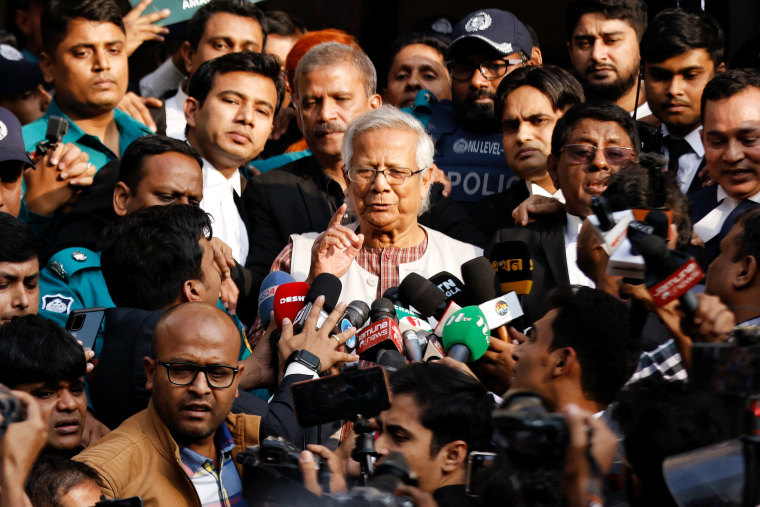FTC Probes OpenAI's ChatGPT: A Deep Dive Into The Investigation

Table of Contents
The Scope of the FTC's Investigation into OpenAI and ChatGPT
The FTC's investigation into OpenAI and its flagship product, ChatGPT, is a significant development in the rapidly evolving field of artificial intelligence. The inquiry centers on whether OpenAI's practices violate the FTC Act, which prohibits unfair or deceptive acts or practices. This isn't simply about a single product; it's about setting a precedent for the entire generative AI sector.
-
Data Security and Privacy: A primary concern is how ChatGPT handles user data. The FTC is likely scrutinizing OpenAI's data collection practices, data storage methods, and the security measures implemented to protect sensitive user information. Are these measures sufficient to prevent data breaches and unauthorized access? This is particularly critical given the vast amounts of data ChatGPT processes.
-
Misinformation and Algorithmic Bias: The investigation also explores the potential for ChatGPT to generate misinformation and exhibit algorithmic bias. The ability of generative AI to create convincing but false content raises concerns about its impact on public discourse and the potential for manipulation. Similarly, biases embedded in the training data can lead to discriminatory or unfair outcomes, impacting various aspects of users' lives. The FTC will likely assess whether OpenAI has taken adequate steps to mitigate these risks.
-
Consumer Harm: Ultimately, the FTC is interested in whether OpenAI's practices have caused or are likely to cause substantial consumer harm. This could involve financial harm, reputational damage, or emotional distress resulting from inaccurate information or biased outputs generated by ChatGPT.
Potential Consequences of the FTC's Investigation
The FTC's investigation into OpenAI carries significant weight, and the potential consequences are far-reaching. The outcome will not only impact OpenAI directly but also shape the regulatory landscape for the entire AI industry.
-
FTC Penalties: Potential penalties for OpenAI could range from substantial financial fines to more restrictive measures. The FTC could impose limitations on OpenAI's data collection practices, restrict its development of AI models, or even mandate specific changes to its operational procedures.
-
Regulatory Precedent: The investigation's outcome will set a crucial precedent for future regulatory actions concerning AI technologies. A strong finding against OpenAI could lead to stricter regulations for the development and deployment of AI systems across various sectors. This could involve mandatory impact assessments, transparency requirements, and stricter liability frameworks.
-
Impact on AI Development: A negative outcome could stifle innovation in the AI sector. However, it could also incentivize responsible AI development by prioritizing ethical considerations and robust safety protocols. The long-term impact on the speed and direction of AI development is a key unknown.
ChatGPT's Impact and the Need for Regulation
The rapid rise of ChatGPT and other generative AI tools underscores the urgent need for ethical guidelines and regulatory frameworks. The technology's potential benefits are undeniable, but its potential for misuse is equally significant.
-
Responsible AI Development: The investigation emphasizes the need for companies developing AI to prioritize transparency, accountability, and user safety. Proactive risk assessments, robust testing procedures, and clear mechanisms for addressing user complaints are crucial aspects of responsible AI development.
-
Mitigating Risks: Regulatory oversight is needed to mitigate the risks associated with misinformation, bias, and potential misuse of generative AI. This involves establishing clear standards for data privacy, algorithmic transparency, and addressing issues of accountability.
-
The Future of AI Ethics: The FTC's investigation serves as a critical benchmark in the ongoing debate about the ethical implications of AI. It highlights the importance of incorporating ethical considerations into the design, development, and deployment of AI systems.
The Broader Implications for the AI Industry
The FTC's investigation into OpenAI has far-reaching implications for the entire AI industry. It's not just about one company; it's about the future of AI development and deployment.
-
Industry-Wide Impact: The outcome will influence how other companies approach AI development and deployment. It will likely lead to increased scrutiny of data practices, algorithmic fairness, and risk management strategies.
-
AI Governance and Liability: The investigation underscores the need for clear frameworks for AI governance, including defining responsibility for the actions and outputs of AI systems. This involves establishing mechanisms for addressing harms caused by AI and clarifying liability in cases of AI-related accidents or incidents.
-
The Future of AI: The future of responsible AI development hinges on establishing clear regulatory frameworks and promoting industry best practices. This requires collaboration between policymakers, industry leaders, researchers, and the public to ensure that AI technologies are developed and deployed in a safe, ethical, and beneficial manner.
Conclusion
The FTC's probe into OpenAI's ChatGPT marks a pivotal moment in the regulation of artificial intelligence. The investigation's outcome will have far-reaching consequences for OpenAI, the wider AI industry, and the future development of generative AI technologies. Understanding the nuances of this investigation is crucial for staying informed about the evolving landscape of AI regulation and ensuring responsible innovation. Stay updated on the latest developments in the FTC's investigation of OpenAI's ChatGPT. The future of AI hinges on responsible development and robust regulatory frameworks.

Featured Posts
-
 Nhl Draft Lottery New Rules Explained And Why Fans Are Mad
May 15, 2025
Nhl Draft Lottery New Rules Explained And Why Fans Are Mad
May 15, 2025 -
 First Up Bangladesh Yunus In China Rubios Caribbean Trip And More Top News
May 15, 2025
First Up Bangladesh Yunus In China Rubios Caribbean Trip And More Top News
May 15, 2025 -
 Proyek Tembok Laut Raksasa Peran Ahy Dan Potensi Kerja Sama Dengan China
May 15, 2025
Proyek Tembok Laut Raksasa Peran Ahy Dan Potensi Kerja Sama Dengan China
May 15, 2025 -
 Michael Venom Pages Prediction How Paddy Pimblett Beats Michael Chandler
May 15, 2025
Michael Venom Pages Prediction How Paddy Pimblett Beats Michael Chandler
May 15, 2025 -
 The Role Of Jeremy Arndt As Negotiator In Bvg Conversations A Deep Dive
May 15, 2025
The Role Of Jeremy Arndt As Negotiator In Bvg Conversations A Deep Dive
May 15, 2025
